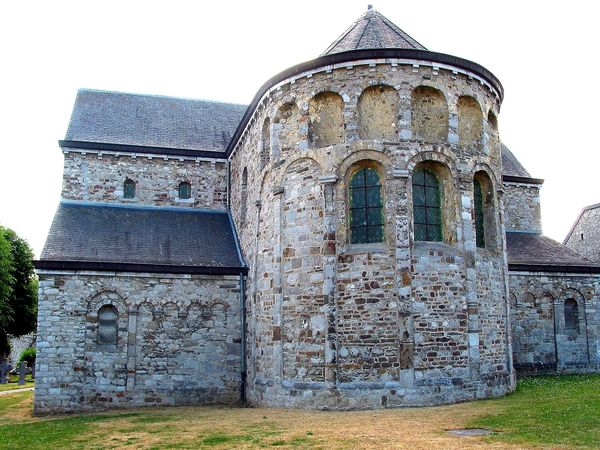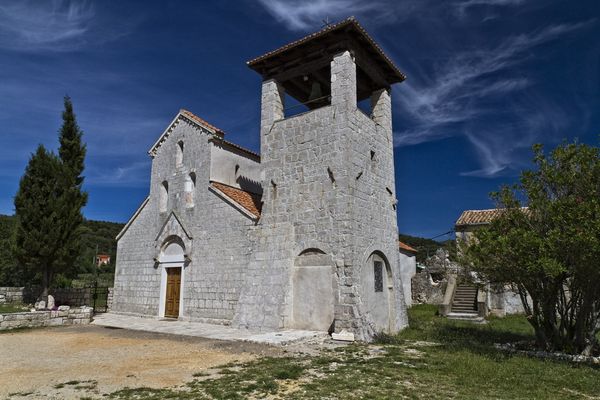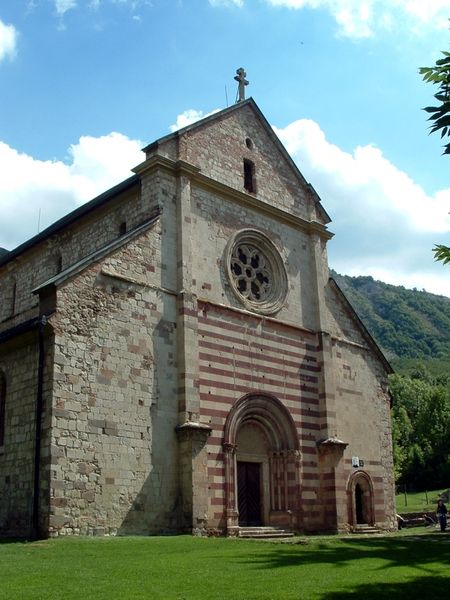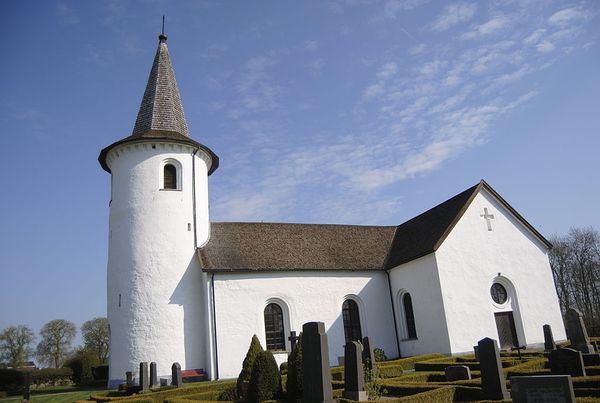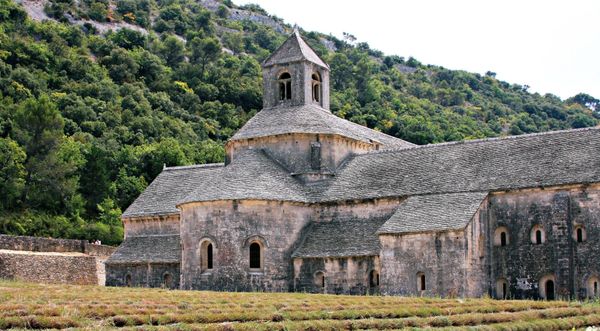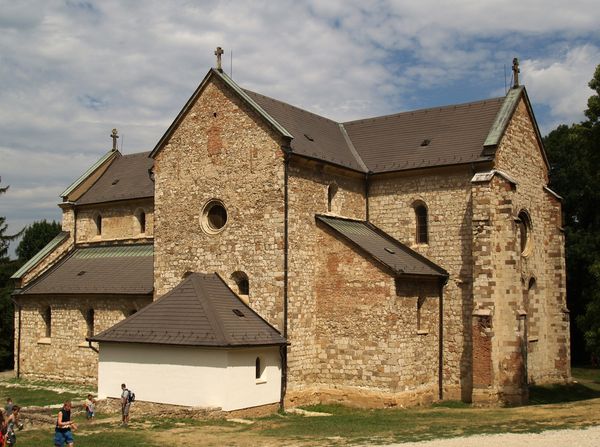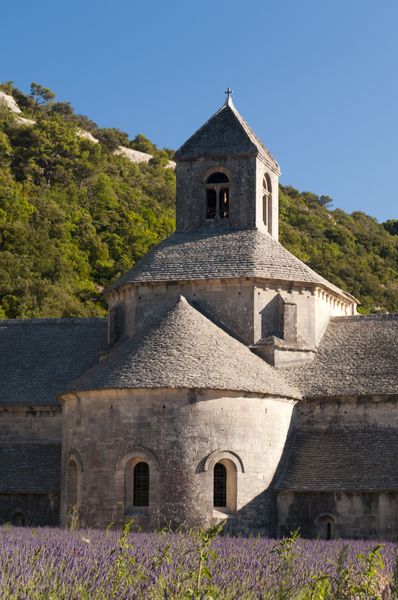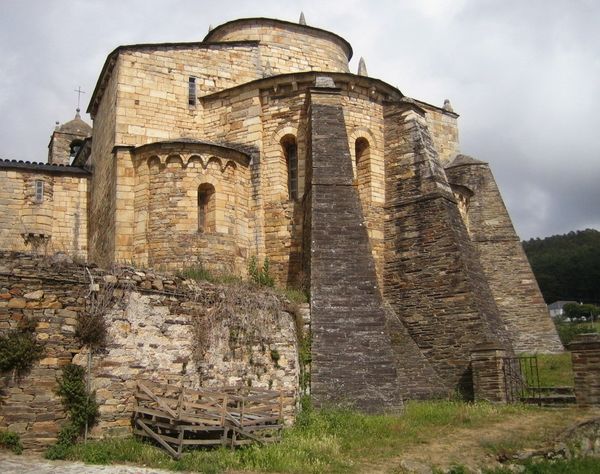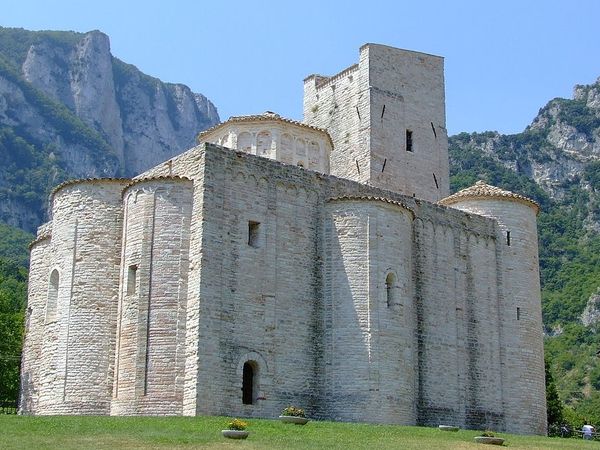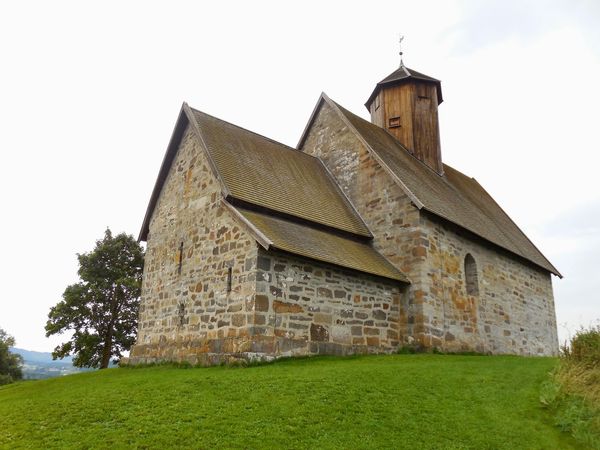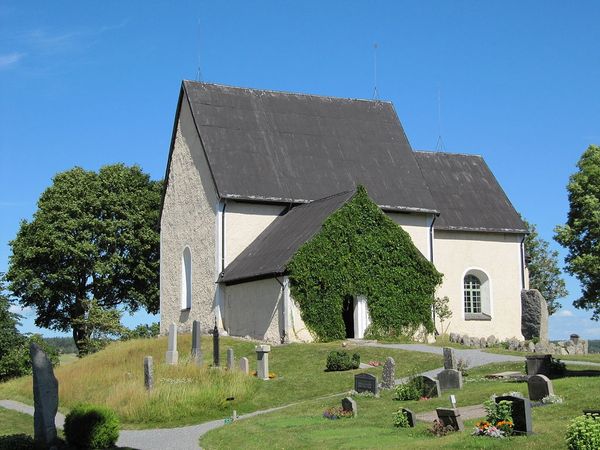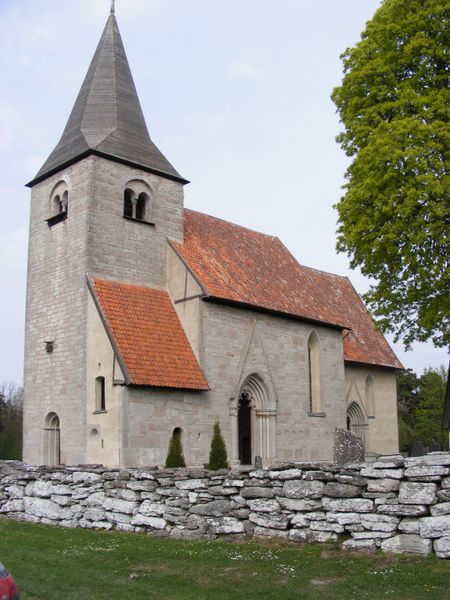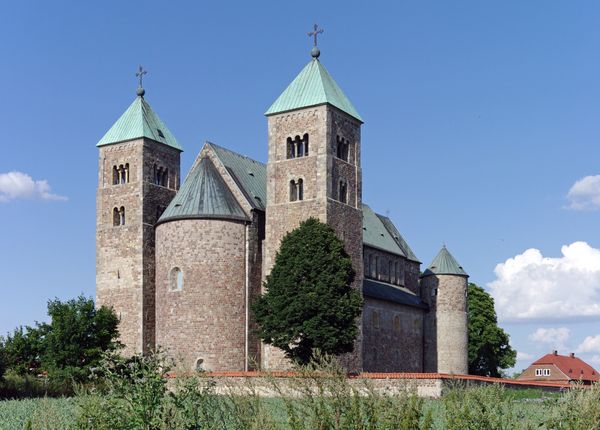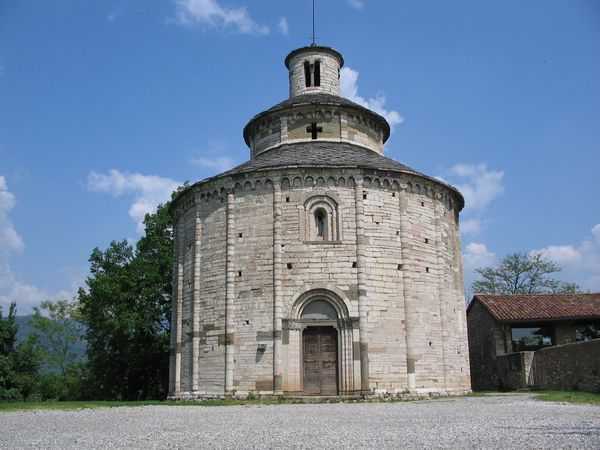
architecture
#
landscape
#
historic architecture
#
romanesque
#
architecture
#
historical building
Copyright: Public domain
The Church of Santa Maria in Viu de Llevata, Spain, was constructed from stone by Romanesque architects sometime between 1000 and 1250. This image encapsulates the profound social changes taking place in Catalonia during the Romanesque period. Its architecture, with thick walls and rounded arches, reflects the stability the church offered in a turbulent era. The church served not only as a place of worship, but also as a focal point for community life. The church’s design is indicative of the cultural influences of the time. The use of stone, a readily available material, speaks to the resourcefulness of local builders. The architecture reflects both the Roman building traditions and the unique regional characteristics of Catalonia. Studying parish records, local histories, and architectural surveys will reveal more of the church’s place in the social fabric. This monument stands as a reminder of the enduring power of institutions in shaping the cultural landscape.
Comments
No comments
Be the first to comment and join the conversation on the ultimate creative platform.
